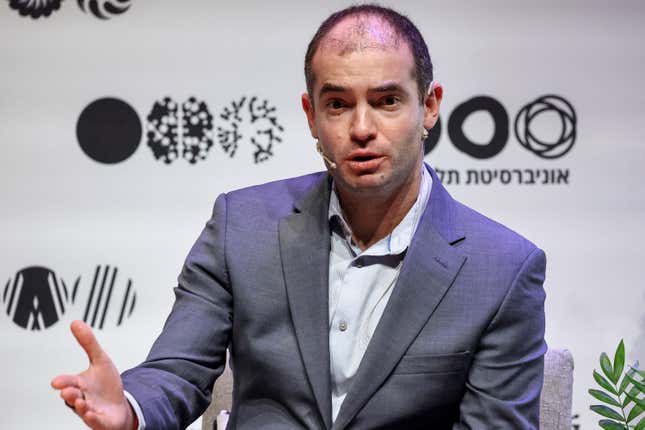
In This Story
As the advent of generative artificial intelligence raises safety concerns, a new startup developing safe AI systems has raised $1 billion.
Safe Superintelligence (SSI), co-founded by OpenAI co-founder and former chief scientist Ilya Sutskever, has raised $1 billion in cash. The funds will be used for computing power and to hire researchers and engineers, executives told Reuters.
The startup will focus on building “safe superintelligence,” or safe AI systems that have human-level reasoning and above.
“SSI is our mission, our name, and our entire product roadmap, because it is our sole focus,” the co-founders wrote in a public letter. “Our singular focus means no distraction by management overhead or product cycles, and our business model means safety, security, and progress are all insulated from short-term commercial pressures.”
After its funding round, which counted heavyweights Andreessen Horowitz and Sequoia Capital as investors, the startup is valued at $5 billion, Reuters reported, citing unnamed people familiar with the matter. SSI declined to share its valuation with Reuters.
“It’s important for us to be surrounded by investors who understand, respect and support our mission, which is to make a straight shot to safe superintelligence and in particular to spend a couple of years doing R&D on our product before bringing it to market,” Gross told Reuters.
Sutskever co-founded the 10-person startup in June with Daniel Gross, former AI lead at Apple, and Daniel Levy, former OpenAI researcher. Gross is chief executive of the safe AI startup, and Levy is principal scientist - with Sutskever serving as chief scientist.
Sutskever left OpenAI in May after almost a year leading the startup’s “superalignment” team, which was focused on AI’s existential dangers. The team was disbanded after Sutskever and his co-lead, Jan Leike, resigned from the ChatGPT-maker. Sutskever, who was part of OpenAI for almost a decade, played a role in briefly ousting OpenAI chief executive Sam Altman in November.
“We’ve identified a new mountain to climb that’s a bit different from what I was working on previously,” Sutskever said in a statement shared with Quartz. “We’re not trying to go down the same path faster. If you do something different, then it becomes possible for you to do something special.”